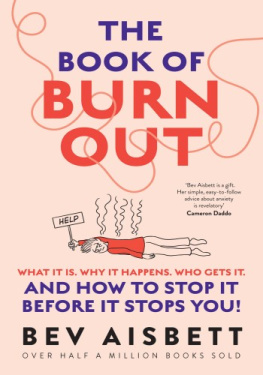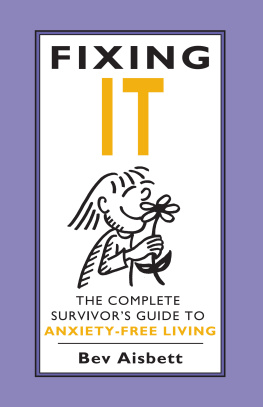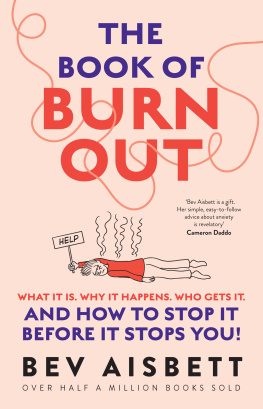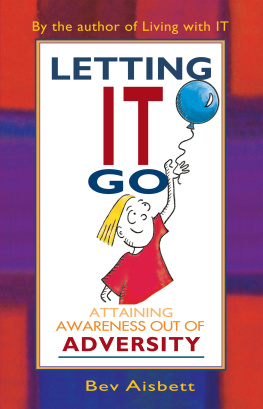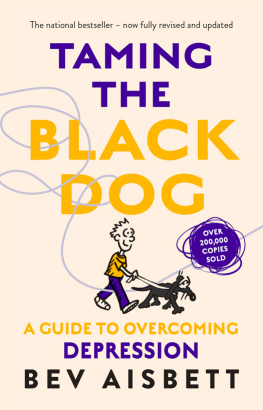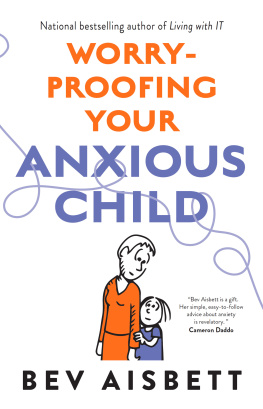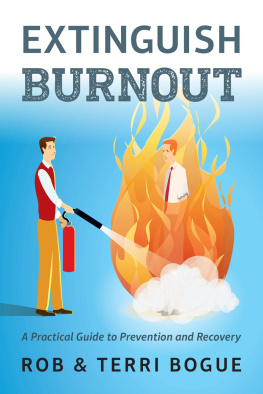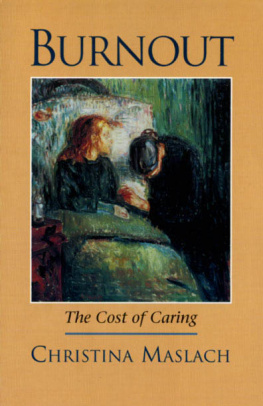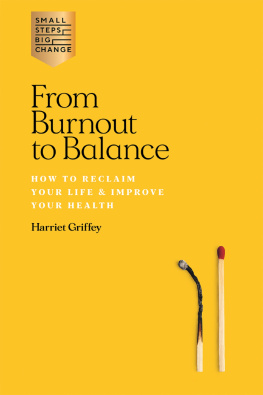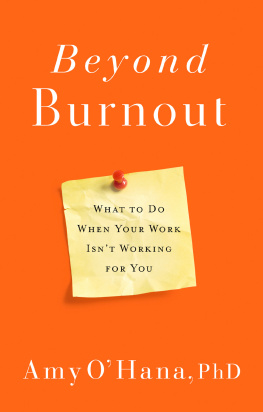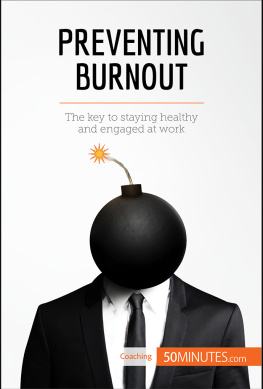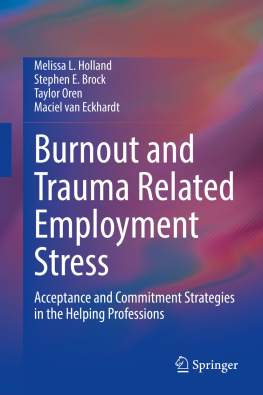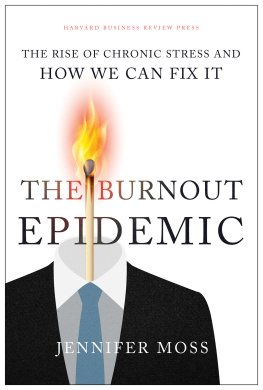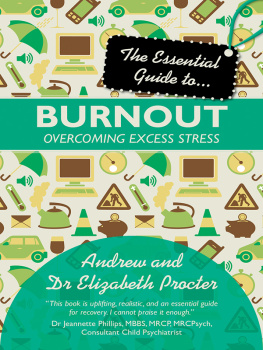To all my fellow Type As may you find peace and have a good nights sleep.
Special thanks to Angelo Madrid for his fabulous work finalising my doodles!
CONTENTS
I have a CONFESSION to make for the first time in the past thirty years of writing my books, I asked for an extension to complete this book, ironically, because of BURNOUT!
I have often joked that my books are written from LIVED EXPERIENCE , but this was taking the PERSONAL research a little too far!
I had taken on too much at one time and, as is my tendency, OVERESTIMATED my ability to get everything done in the time I had available.
This is a classic set-up for BURNOUT , where we think we can do the IMPOSSIBLE at the cost of our wellbeing, health and quality of life.
The important message from this personal example is that I knew early enough when to call it quits but, sadly, many people dont. This book is created with those people in mind.
Although the term is often casually TOSSED ABOUT , burnout is NO JOKE it can impact every area of your life and leave you depleted in almost every sense.
And BURNOUT is COMPLEX as I discovered when researching this book. In fact, the more I delved into BURNOUT , the more TENTACLES it grew!
So, from LOW-LEVEL burnout to the FULL-BLOWN version and what to do about it welcome to THE BOOK OF BURNOUT !
Does your AVERAGE day look like THIS ?
THE MOMENT YOU WAKE, YOURE ON TILL BEDTIME.
YOU GRAB SOMETHING TO EAT ON THE RUN.

IF YOU GET ANY EXERCISE, YOU CRAM IN A HIGH-INTENSITY WORKOUT.
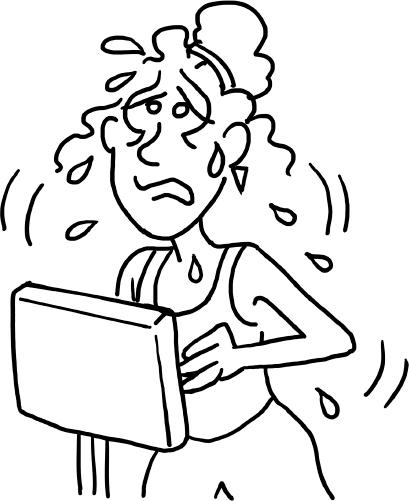
YOU MUST BE CONSTANTLY AVAILABLE.
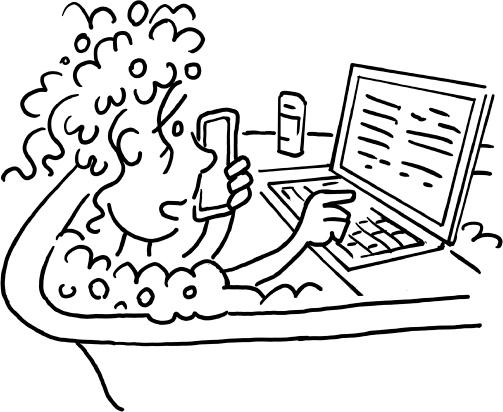
AND EVEN RELAXATION MEANS BINGEING SO YOU DONT MISS OUT!
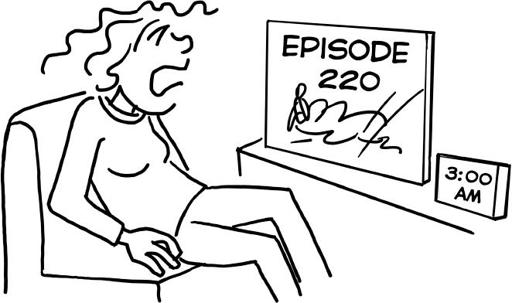
Youre too WIRED to sleep and too TIRED to function, but you repeat this day AGAIN and AGAIN and AGAIN !
If this goes ON , you could soon be in BURNOUT !
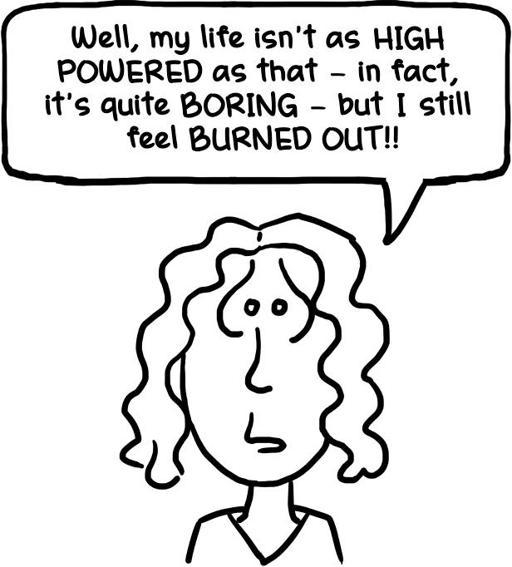
And youre RIGHT !
DEFINING burnout is not as straightforward as it may seem at first and is NOT LIMITED to a particular WALK OF LIFE OR LIFESTYLE .
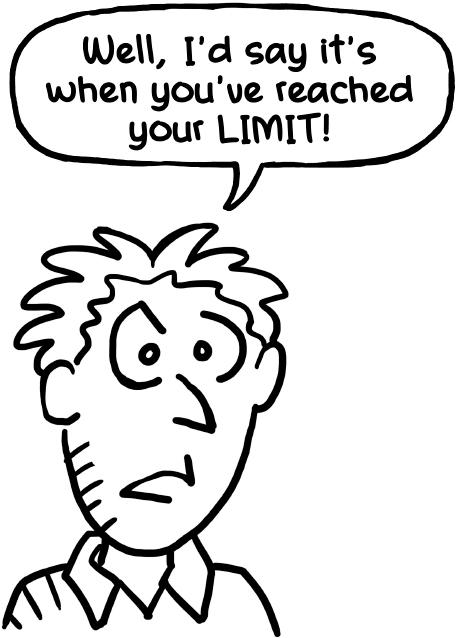
But is that BURNOUT or FRUSTRATION ?
Could it be DEPRESSION ?
or FATIGUE ?
or even BOREDOM ?
And how do you know when you HAVE reached your LIMIT ?
Is it when youre EXHAUSTED but CARRY ON ?
Or when youve reached the point where you simply CANT carry on?
Ask a group of people and youll find each person has a different take on what BURNOUT means:
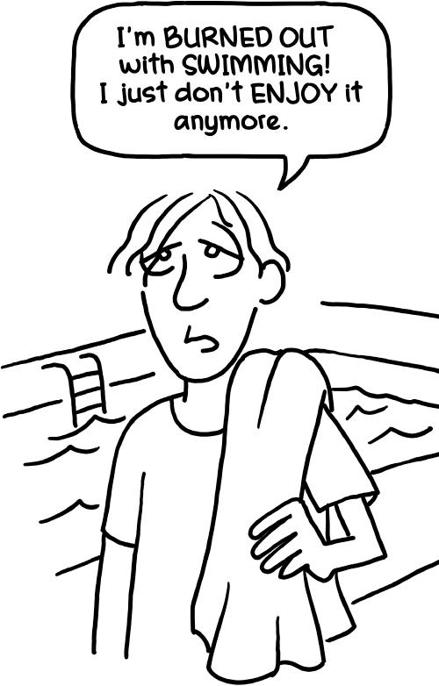
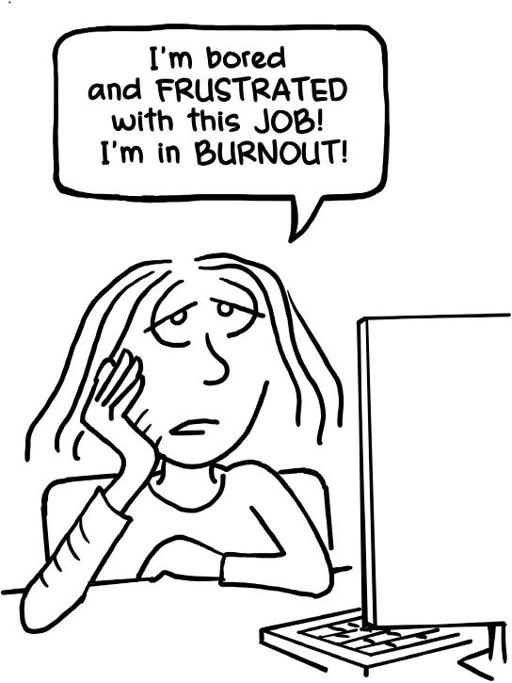
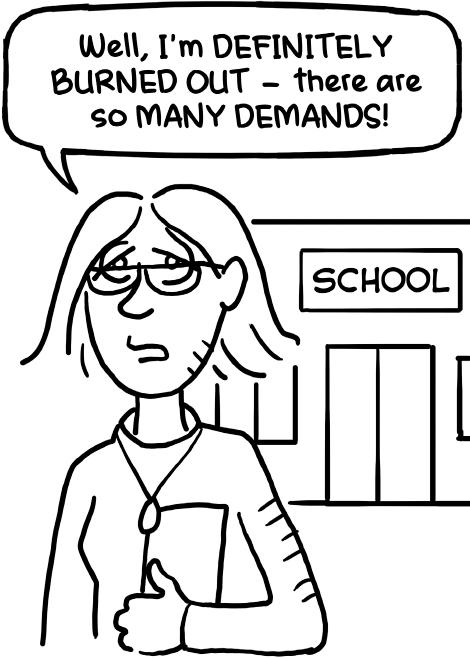
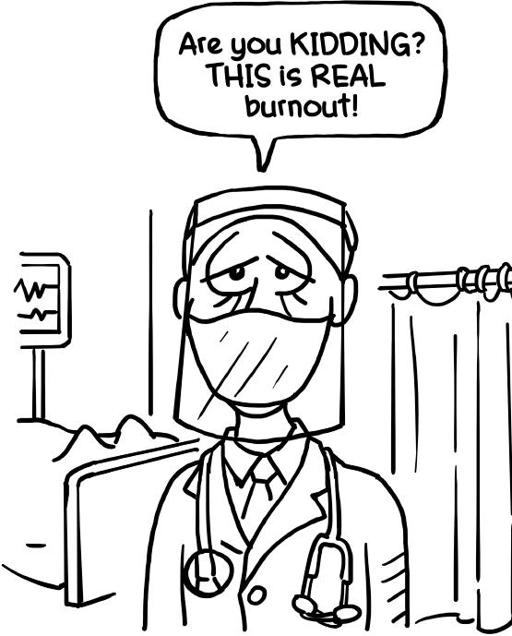
Interestingly, prior to 1974, there wasnt a recognised NAME for burnout, even though the condition has surely existed throughout history.
Psychologist Herbert Freudenberger and Professor of Psychology Christina Maslach first independently researched and made known the concept of BURNOUT .
Freudenberger is credited with coining the term while working long hours at a substance abuse clinic. At the time, burnout was used as SLANG to describe the effects of extreme drug use, but was soon adopted by the clinic staff to describe the TOLL visited upon them by the punishing DEMANDS of their work.
Previously, BURNOUT was not recognised as a condition on its own, but was incorporated into the broader categories of stress syndromes or nervous breakdowns. According to the World Health Organization (W.H.O.), burnout is not regarded as a MEDICAL condition and only marginally as a MENTAL ailment.
It is only recently (2019) that W.H.O. acknowledged burnout at ALL , categorising it as a syndrome conceptualised as resulting from chronic WORKPLACE stress that has not been successfully managed in the organisations diagnostic manual, International Classification of Diseases.
This definition was guided by Christina Maslachs Inventory of Burnout, which covers three main areas:
- EXHAUSTION measures feelings of being overextended and exhausted by your work.
- CYNICISM measures an indifference or distant attitude towards your work.
- PROFESSIONAL EFFICACY measures your satisfaction with past and present accomplishments, and it explicitly assesses your expectations of continued effectiveness at work.
Again, the focus here is on WORKPLACE burnout.
In fact, W.H.O. goes on to state that burnout refers specifically to phenomena in the OCCUPATIONAL context and should not be applied to describe EXPERIENCES in other areas of life.
While W.H.O.s definition recognises one aspect of burnout (in the WORKPLACE ), it disregards the various types associated with MANY aspects of living in the current climate especially given the ADDITIONAL stresses that COVID-19 has brought to bear.
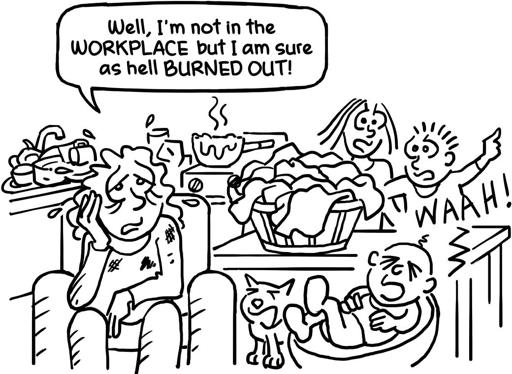
BURNOUT can affect ANYONE , from stressed-out career-driven people and celebrities to overworked employees and homemakers.
So, to DEFINE burnout, TYPES as well as DEGREES of burnout need to be considered not only in the WORKPLACE but also in a BROADER CONTEXT , which we will explore in this book.
But in the MEANTIME , people generally agree that BURNOUT means the following:
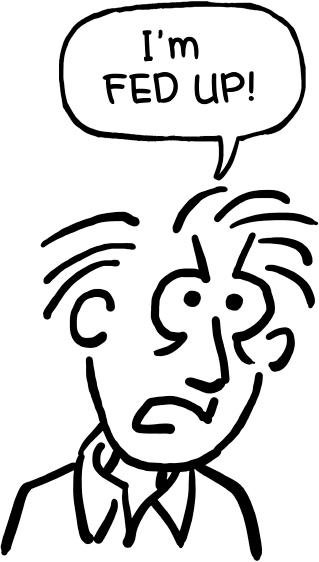
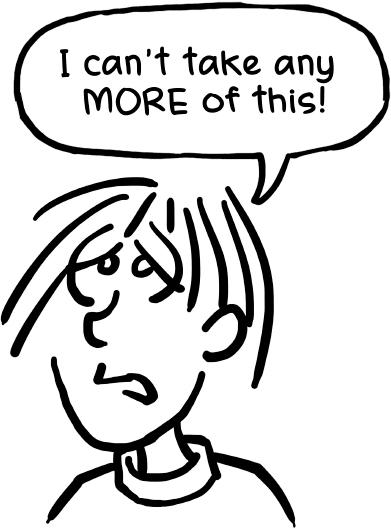
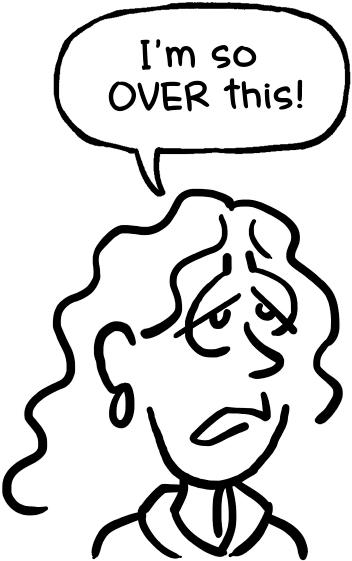
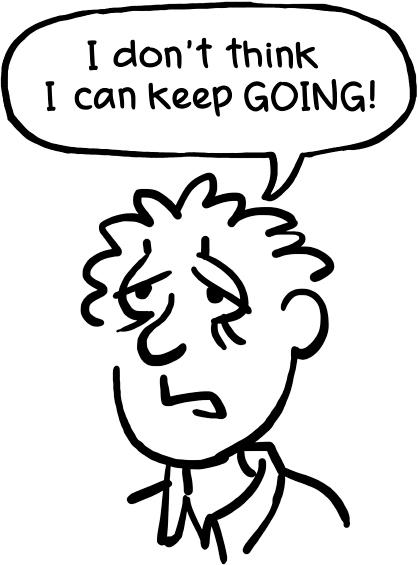
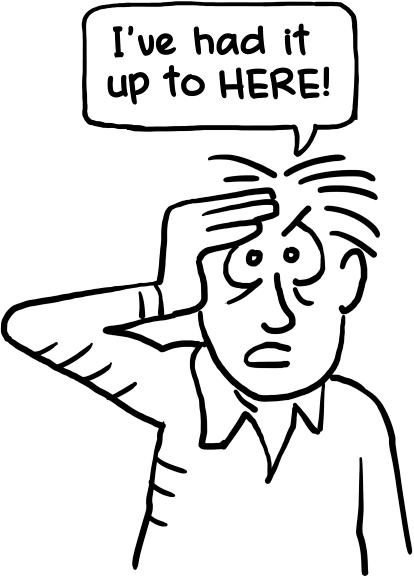
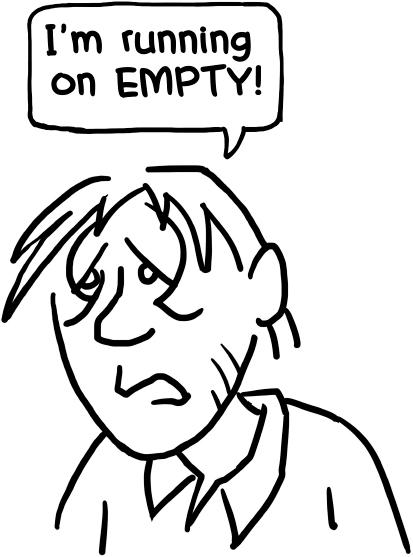
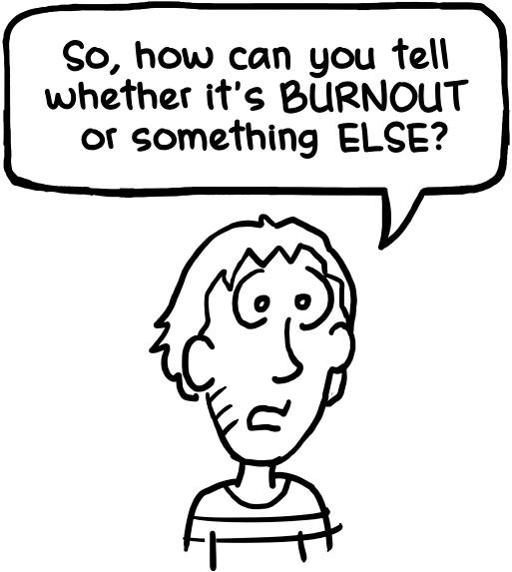
Well look at that NEXT .
As we have seen, BURNOUT is most commonly associated with the WORKPLACE , or when a person takes on extra RESPONSIBILITY and feels OVERWORKED , OVERBOOKED and INDISPENSABLE but burnout is far more NUANCED than just being busy or overwhelmed by responsibilities.
Next page
